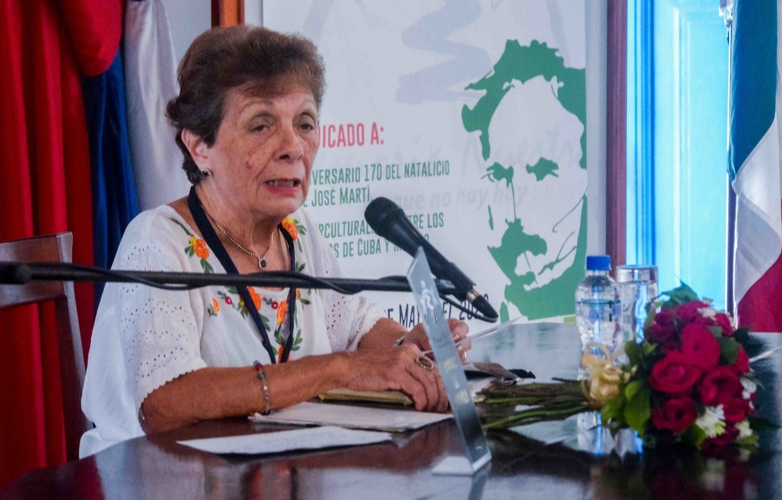
Photo: Yaciel Peña de la Peña
Havana, May 5 (RHC)-- The concept of Revolution addressed by José Martí in his work as a construction over time was the central theme of the lecture given by researcher Francisca López Civeira at the Congress of Thought Memoria Nuestra, part of the XXX Romerías de Mayo, which is being held in Holguín over the weekend, until next Monday.
The also winner of the National Prize of History and Social Sciences stressed in this debate, held in the Patria Hall of the Provincial Museum La Periquera, that Marti assumes the term Revolution in his essay and journalistic work as a concept that is built over time, and that depends on the historical contexts.
López Civeira pointed out that when Martí was only 20 years old, he introduced this term in his writings, warning that it is generated as the result of a source of rights that are only attainable when changes are generated in the midst of it; and in this sense he emphasized the new laws and reforms that were introduced, mainly in the eastern part of Cuba after the Ten Years' War.
Another of the experiences that structured this concept in the Apostle's work were his trips to several Latin American countries, such as Mexico, Guatemala and Venezuela, when he analyzed the changes introduced by these states, added the also Master of Youth Award of the Hermanos Saíz Association.
He also explained how important documents in Martí's work were, with respect to the concept of Revolution, the essay "Our America" (1891), where he said that the problem of independence is not the change of form, but the change of spirit; the foundational bases of the Cuban Revolutionary Party (1892) and the Manifesto of Montecristi (1995) as a program of the Revolution that was being prepared in Cuba.
Martí insisted on the need to found a new people and sincere democracy, but the important thing was to put an end to colonialist customs and that war was the means, but the objective was the Revolution.
In this concept, the National Hero not only speaks of independence from Spain, but also of the need for an anti-colonial Revolution, and that is what he projects for Cuba from the beginning.
The anti-colonial Revolution is necessary and possible for its foundations, but it is necessary to analyze it in its historical moment, and from there arises the possibility of considering an anti-colonial revolution, which is what was not done in Latin America, according to his vision in Mexico, Guatemala and Venezuela; not a simple change of form, but of essences.
As part of this space, the Organizing Committee of the Congress gave, in a special way, the Memoria Nuestra de Honor Award to Francisca Lopez Civeira, in recognition of her outstanding work, with relevant contributions to the culture and research of the history of Cuba.

